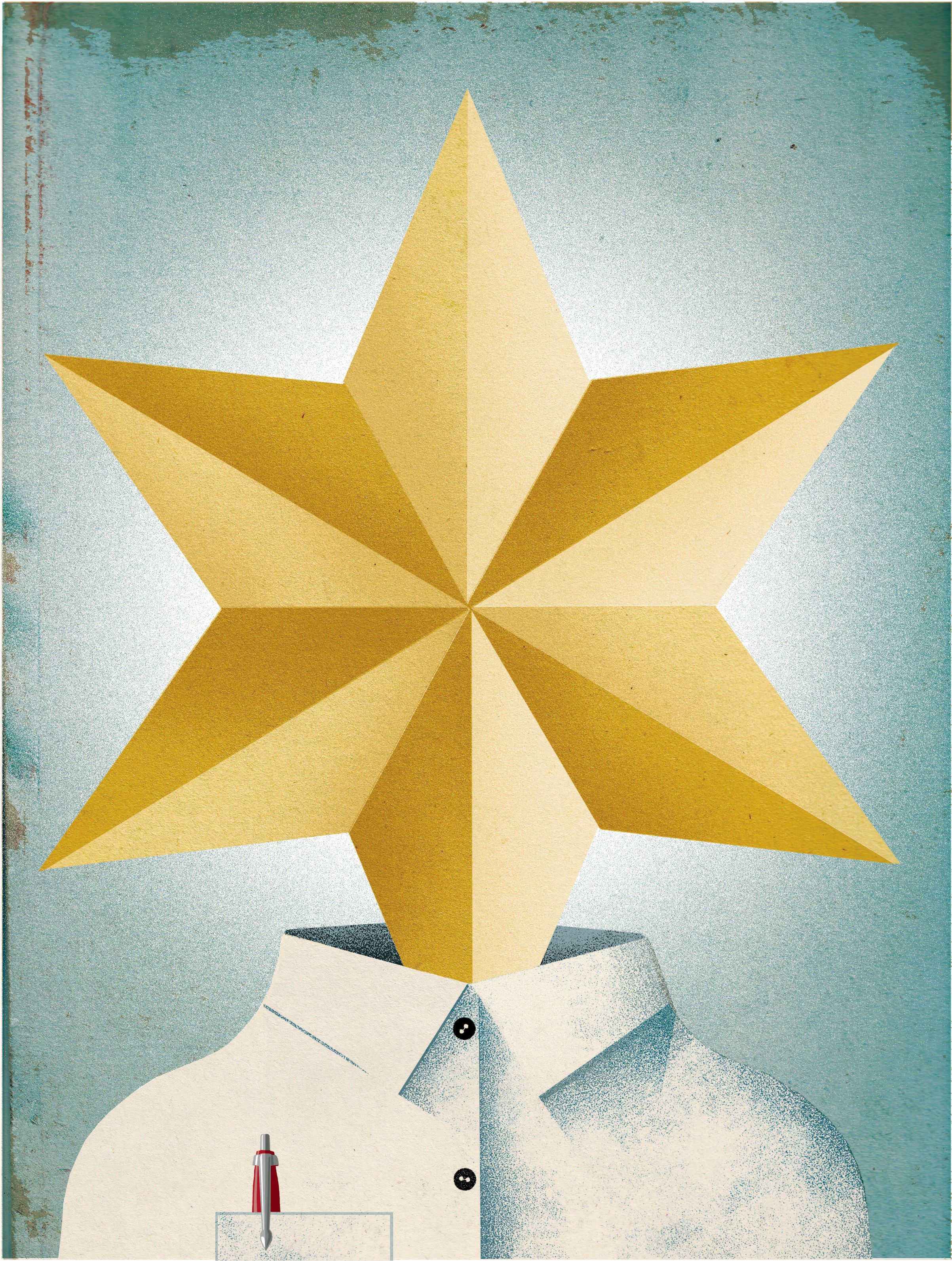Trust can make us sparkle like stars

By Laurits Støvring Andreasen, sixth semester physics student
Illustration: Morten Voigt
Dear Sofie Carsten Nielsen
Do you know why the sky is black even though there are so many stars shining in the heavens? Word has it that it’s because not even light can travel infinitely quickly. The light from the many stars has simply not reached us yet. For even light cannot travel unhindered from one place to another. Even light can meet resistance along the way and that is why stars sparkle.
Two weeks ago I had the honour of talking to you in front of Aarhus City Hall where a group of students were gathered to protest. Here I asked you why you had been delayed in completing your study programme. You replied that it was because of student jobs, politics and laziness, and that you wished someone had given you a nudge in the right direction so you could have graduated within the prescribed study period because that would have been best.
I was astonished. Do you believe that you have wasted two years of your life? That you misappropriated the Danish treasury by using extra SU (the Danish education grant and loan scheme, ed.)? On the contrary, I believe that extra time gave you something else that you maybe could even use as a government minister today. I don’t know of course, but I believe it did.
I was also able to tell you a little about my own department. About how everyone from students to management are concerned about what the study progress reform will entail. Take me for example. I have just submitted my Bachelor's project. I specified the submission date and at the actual submission I also signed the registration for exam.
I toiled away to complete the assignment, and as a thank you, my department showed enough trust in me to also allow me to be involved in assessing when my project was ready to be submitted.
It’s actually fantastic to have a system that is based on such a degree of trust. And also on flexibility that leaves room for things that go wrong. In theoretical physics we often use computer-assisted calculations and during my Bachelor's project there was a time when things almost went wrong because I didn’t have a computer for a time. Fortunately I knew that I could postpone the submission date a little so that such a mundane and simple challenge would not ruin the quality of my project.
At the same time I managed to read up on complex integrals, group theories and quantum mechanical scattering theory before I found out that what I needed to use for the remainder of the assignment could be written in about four lines. Time wasted you might think – but I disagree. In fact, this has meant that I moved on from my Bachelor's project much wiser and more skilled. Perhaps I can even make use of this knowledge in the corporate world some day?
With the study progress reform, all of this will soon be over!
You can keep talking about how the universities must plan the study programmes in such and such a way. But planning will never be able to take the place of opportunity, trust and flexibility. I'm not saying that this trust is free or always the most practical. But it is worth the effort.
A European probe with a Danish contribution on board recently landed on a comet. There were probably delays along the way. The probe certainly took a long time to arrive.
Why show this trust and spend so much time and money on such a project? Because we are human and therefore curious.
Sometimes you have to travel far away to be able to move forward. And we need to show enough trust for such a journey through space. Human activity is like light travelling through the atmosphere – it’s not always without difficulty. Maybe that’s why we – just like stars – sometimes sparkle.
Translated by Peter Lambourne

